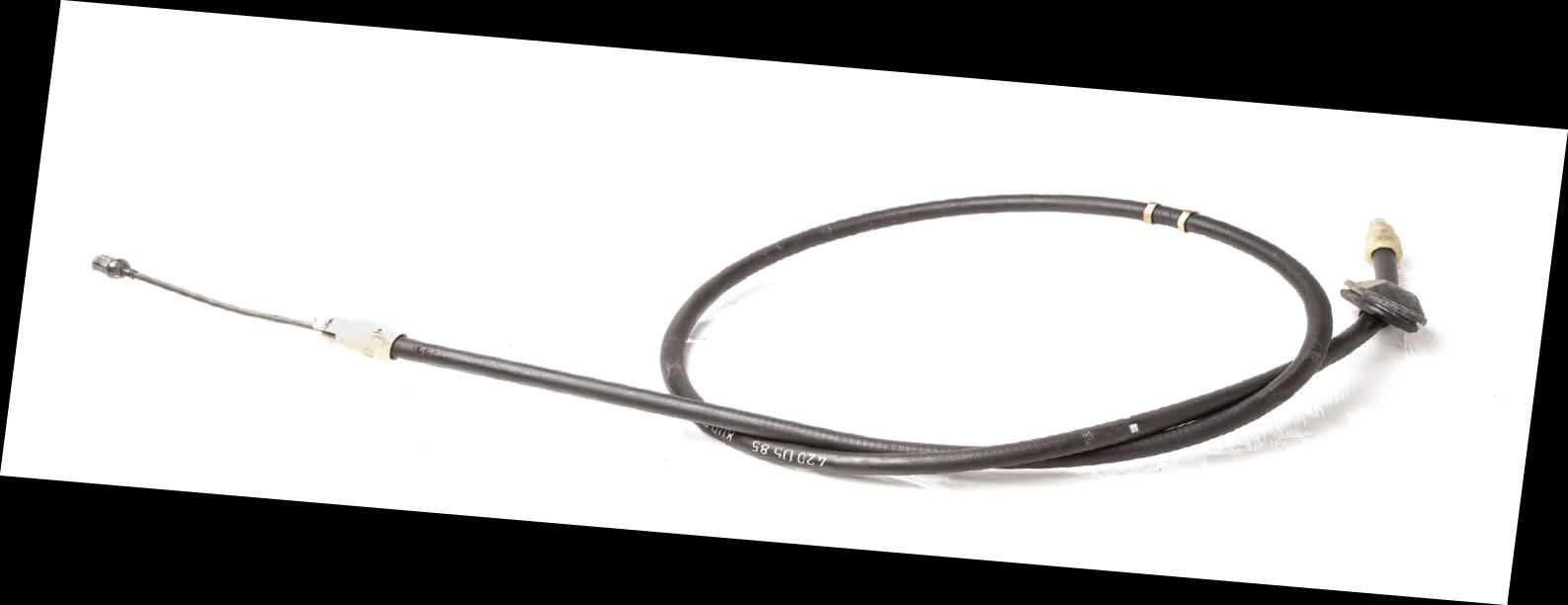Wire rope lubricants are critical
By Dr. Selim Erhan, TLT Editor | TLT From the Editor November 2024
Remember to use your parking brake occasionally, or you could run into trouble.


I read Dan Holdmeyer’s great Lubrication Fundamentals article this month on wire lubricants. I have a personal story that will supplement the importance of this article. I suggest reading his article first
here, then coming back to read my column.
First, I want to quote and draw attention to what he says at the end of this article. “One last thought: The parking brake cables in many automobiles are small wire ropes encased from the pedal inside the cab to the brake drum. The encasement protects the cable from road salt and water spray. However, if the brake is never used, the cable sits in one position for years. Without movement to draw the initial cable lubricant between the internal cable wires, the wires lose lubricant protection and corrode until one day when the parking brake is eventually used, the cable snaps. If the parking brake is engaged regularly, the parking brake cable would continue to relubricate itself and last a lot longer.”
Most of us in the U.S. drive automatic cars, and most of us live in relatively flat areas—therefore we seldom use parking brakes (also called emergency brakes or e-brakes). I had not used mine in years until we had gone on an extended travel overseas. We were visiting our parents with our six-month-old daughter. Most may remember with young children, there is quite a bit of preparation because you have to carry all food, supplies, sterilizing equipment, diapers and a long list of other items. We had asked a friend who was working with a major airline if he could park our car while we were away. He was happy to do so. Our trip went smoothly, and we finally made it back to Chicago exhausted, sleepless and out of supplies—but only three hours away from our home in Peoria, Ill. Our friend had parked our car and sent the location. We found the car and packed everything in. The car started fine; the tires were in good shape. Then the nightmare started.
The car would not move. Our friend had set the parking brake, and we found out later the brakes had seized. Maybe the wire also had broken like Holdmeyer says. This was 30 years ago when there were no cell phones. We were in the middle of a vast, mostly empty parking lot on a Sunday afternoon with a crying baby. I don’t remember how I got to a pay phone, but I called a tow truck. The tow truck driver said this was a common problem and happened when people seldom used their parking brakes. He took off the tire and hammered the brake until it was loose. After two hours of anxiety and now a fully non-stop crying baby, we were finally on our way!
Of course this is a story of inconvenience. There could be and probably are many worse stories—cars getting stuck in freezing temperatures, getting stranded when the nearest help is many miles away and so on. So, we should keep a close eye on all our equipment and not count on conveniences such as cell phones. If my story had happened today, and I somehow had no access to a cell phone, I would have continued into a second nightmare where there are no coin-operated phones or coins! If you say commonly that not everything can go wrong all at once, just for argument sake, it is still good to be prepared, and please use those parking brakes at least once in a while!
Dr. Selim Erhan is director of business development for Process Oils Inc. in Trout Valley, Ill. You can reach him at serhan@processoilsinc.com.